
Practice Love, Knowledge and Truth.

Swamiji’s farewell to 2017 and welcome to 2018.
Click below on the triangle “play” button to hear the audio recording.
71 minutes.
Gurupurnima Message
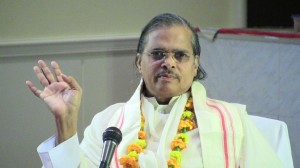
OM Namo Bhagavate
Blessed devotees and great yogis,
On the occasion of Gurupurnima I send my profound love and blessings to all of you.
Guru is the human form that consciously carries the force of GOD. And Purnima is the night when the Moon manifests itself in its totality, in its fullness. Gurupurnima therefore symbolizes the day of manifestation of the Guru who dwells in the heart of a disciple. On this day the Guru aspires to see the manifestation of the Guru Shakti in the form of his disciple. A true sadguru always wants to see his disciple as a guru before he drops his mortal body. This is known as guruparampara or guru tradition. The guru-disciple relationship rests on this foundation of aspiration and resolve. This bonding binds the liberated guru to the aspiring disciple. Gurupurnima is not a day of celebration with the human guru. It is a day of solemn resolve, a day of sincere surrender to Gurushakti. Every enlightened guru knows this.
When I think of any one of you my heart rejoices with joy and I feel the delight of your presence in my life, your presence on earth when I am on earth. We both are on earth but none of us are earthly.
In my 24 years of conscious living to see the manifestation of the Guru in you I have constantly worked to guide you to your own fulfillment. I want you to reach your fullness and make others feel that you are truly full of Love, wisdom and compassion. For you I exist, for you I live and for you I strive. I don’t have any other purpose on earth. Please remember this.
My form may be far away from you but I am eternally present within you. Just close your eyes for a moment and think of me and you will feel I am there in you. My love for you is not based on any expectation. It is resting on the foundation of my sacrifice and your surrender. I can’t exist without your aspiration and you can’t manifest your true self without Me. Let this understanding hold us together.
Through this letter I send my Love to all of you and I promise and assure you that I will never leave you until I have seen your own manifestation. On this sacred Gurupurnima day I beg you to give me this assurance as your GURU DAKHINA to Me.
Blessings and Love.
Gurudev.
What is spirituality? [Interview]
Omm Namo Bhagavate
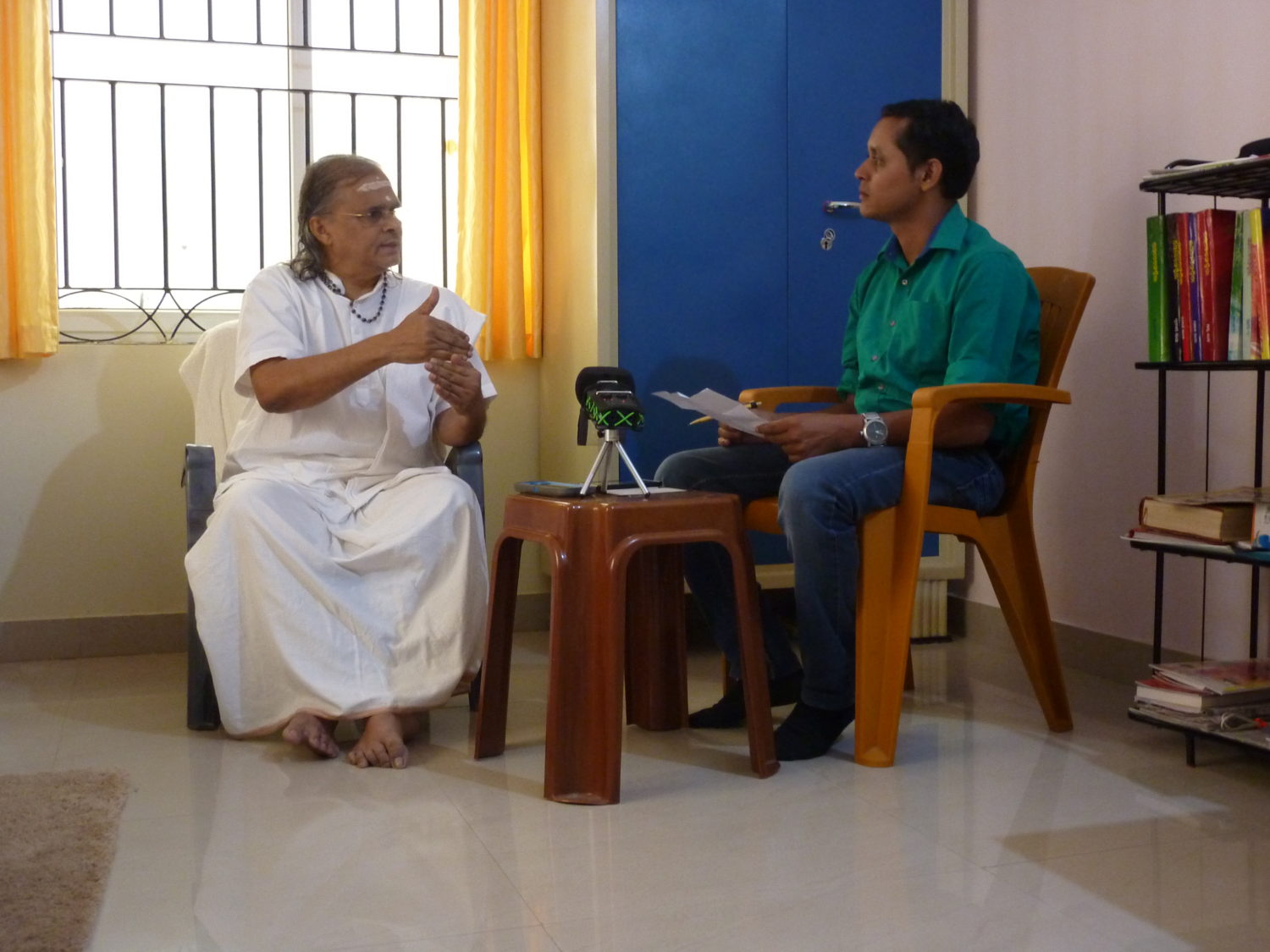
[Transcript and recording of a 12 June 2017 newspaper interview with Swamiji. Click below on the triangle “play” button to hear the audio.]
Question: What is spirituality, how a layman will understand what spirituality is?
Swamiji: Spirituality is a way of living the life to realize the spirit, to manifest the spirit and to transmit this force so that many people in society can be awakened to spirituality.
Spirituality is not a dogma. It has no do’s and do not’s. It does not follow any ritualistic pattern. Basically, spirituality deals with the meaning of spirit or soul and the method to experience this soul and the process through which this soul or the spirit in man gets transmitted to others. Other than this, in my view, spirituality has no other meaning.
Next question: Do you think the common people have lost their faith on the so-called godman and spirituality?
Swamiji: Good question, but I would like to first clarify about what is the meaning of the word faith. Faith is not what common people understand. Faith is something which comes only after realization. Prior to realization what we all know and feel about faith is called belief. Belief is mental, but faith is not mental, faith is total. The common man’s belief on godman, about godman, about saints, this is prone to change and it is natural, it is normal, because belief is a state of mind and the mind has been fed many things regarding God, godman, saints, seers.
Wherefrom the mind got it? It is written in the scriptures. “This is what God is,” the scripture says. “This is what a godman is supposed to do, this is how a godman is supposed to live his life.” All these are codified in scriptures. When these are violated, the belief of the common men on godman is shaken. Unfortunately, that has happened to a very great extent in the present society.
Many spiritual beings, I will not call them godman, because God is never a man, so the very term godman is a misnomer. It is man who realizes God. There is no godman. To whomsoever you may call godman must be a human being who has realized some divinity, who is able to manifest that divinity through action. So I don’t feel comfortable to call X, Y or Z as godman. They are spiritual beings, and as spiritual beings the society expects that they must have realized the spirit or the soul, and once you realize the soul, naturally your action, both inner and outer, is bound to reflect your realization. If that is not happening the conclusion is one has not realized the soul.
If the action of any spiritual being is not reflecting the light of the soul within, then it is definitely something for which the person should be first concerned. So when anyone violates that norm, naturally the belief is shaken, but not the faith.
Question: Most of the gurus now leading a very lavish lifestyle and it is contrary to spirituality.
Swamiji: Lavish lifestyle is a relative term. For someone which something may be lavish, but the other man it may be a necessity. Say for example, we are now sitting in this room. You are a journalist, you are asking me questions I am answering. Okay? Outside it is hot and humid. We are sitting in a room where there is air conditioner. Because there is an air conditioner we are able to sit, think, do our work perfectly. But if you go to a man in the street who is not having a roof over his head, he will say, “Oh, that Swamiji is having a lavish lifestyle.” Okay?
What is lavish actually? Lavish in my definition is that life style which we in spiritual terms call indulgent lifestyle. Indulgence. Means perpetuating, enhancing and repeatedly running after the experiences of the sense and using the material power to achieve that goal. That is called lavish lifestyle. Means putting air conditioner inside the bathroom, having a ten-bedroom house, purchasing the costliest car even when your normal travel daily need is within twenty miles. That which is not necessary for the work that you are supposed to do, that which is not necessary at the level of your consciousness where you are, but you are misusing and abusing material resources just for the sake of comfort, luxury, indulgence. That is lavish lifestyle.
Whether any saint or swamiji is using these things for this indulgence purpose, I do not have any personal knowledge about that. That is why it will not be proper for me to say that X or Y or Z is leading a lavish lifestyle. Like suppose, a prime minister needs to go to address a meeting and he is short of time so he is taking helicopter. But the same person when he is out of power and he is needed to address the same group in the same place, he can travel by car, he can travel by bus, he can take a taxi. But because he has money, if he is using a helicopter, that you can say it is a lavish lifestyle.
So lavish is relative term. If a saint is in such of state of health that his body simply cannot survive if he is not having a room which is having controlled temperature, free from dust, free from bacteria … I have seen many, many revered saints of India. I am telling you one saint who was really impressed me. I met him in Rishikesh and he will be constantly in an air-conditioned environment, because he uses oxygen musk for his survival. And two people who had gone with me who do not know anything about that Swamiji, they said, “He is leading such a lavish lifestyle, Swamiji, how can he be an enlightened being?” I told, “This answer I cannot give because you have not come to the stage of knowing anything about him. You do not know his health condition, you do not know his personal nature.”
So if we look at a distance what will happen? Two things. A mountain having no tree, full of only rocks and thorny bushes, if you look at a distance it looks beautiful. Opposite thing happens. If you look at a distance a spiritual being, an enlightened being, he may not appear to you to be beautiful, he may appear to you to be ugly, because the present society is now completely overwhelmed with negative thoughts, negative attitude, negative judgement, negative views, that is why many a time we are prone to think in that way.
But all said and done, I am also not denying what you are saying. There are some spiritual people, even some spiritual saints and swamijis those who are truly living a life of indulgence. I will not use your word, I will use my word, but both the words are same, meaning is same. Indulgent life they are leading.
Question: Okay. Swamiji, you are the pioneer of spiritual journalism, you are publishing a news magazine name Satyavarta which is the program. So in few words please tell us about the concept of spiritual journalism.
Swamiji: spiritual journalism aims at awakening the spirit in man through journalism. Spiritual journalism aims at creating opportunities for the awakened man to experience the spirit in him, and finally spiritual journalism means to disseminate and present knowledge in such a way that the spirit side of man, the divine side of man, the divine side of society will be manifested.
Question: In present circumstances you have sell news so do you think it is practically viable to sell spiritual journalism?
You have to sell your channel, you have to sell your newspaper.
Swamiji: That’s a perfect question. If news can be presented in a truthful manner, without any bias, without any coating, without any contamination of personal feeling, it will hit like a missile in the heart of every human being and the readership will increase millionfold. Because news is not being presented uncontaminated, as it is, it is being mixed with impressions, opinions, views, preconceived bias, that is why news magnates are trying to sensationalize news to attract —. That’s wrong.
Question: Very precisely please tell how do you differentiate between ethics and spirituality?
Swamiji: when you transcend ethics, not when you break ethics, when you transcend ethics, you reach the zone of spirit. So ethics is concern with regulating human behavior so that man will be in conformity with the ideal. Spirituality is transcending the barrier of ethics but not in any way violating ethical norms in personal conduct.
Question: Last but not the least. Now a sense of mistrust as I told before is viewing among the mass about spirituality and spiritual gurus. The popular believe is there all these things are hypocrisy. In this context, what do you like to tell to the mass and gurus?
Swamiji: To the mass I will say everything is not hypocrisy, because if everything will be hypocrisy, there shall be no creation, there shall be no rule. To make a generalization is not correct. We cannot say all the politicians are corrupt. We cannot say all the bureaucrats are corrupt, we cannot say all the people are immoral. So to say that in a general term is not correct. I will say to the mass that let your belief change but not your faith. let your faith be intact on God and goodness and if the mass will carry it, then the minority will bound to change.
So everything is not lost, but definitely something is lost. And because something is lost, those who are thinking for society, like you people, media people, saintly beings, they already have started deep thinking how to rectify it, how to correct it, and I see this as a positive sign, is a good sign. Prakriti is taking care of itself, God is taking care of his own creation. Everything will be good.
Question: Then what you would like to tell to the gurus?
Swamiji: Who am I to tell anything to the gurus? Because my definition of guru is someone who has transcended the gunas, one who is Brahman in manifest form, one who carries God in every breath, in every cell, in every thought. To such a person who am I to say anything?
Question: What do you like to tell to the people who have influenced people a little bit in spirituality?
Swamiji: I will say to the people please don’t lose your common sense. Exercise your common sense, don’t believe in these magics and miracles and don’t support anyone if he is violating the norms of ethics and morality. Don’t support any one if he proclaims himself to be God or godman.
Question: Okay, Swamiji, last one. To be very precise, how do you relate materialism and spiritualism?
Question: These things are contradictory or is there any kind of relationship?
Swamiji: These are not contradictory, these are the two side of the same coin. Matter is the manifest part, spirit unmanifest part. So matter should rest on spirit, means the manifest part of life should definitely be based on the unmanifest part of life. The unmanifest part of life is the soul or the divine attributes. The manifest part of life is the life as expressed through mind and senses and intellect. So life should be firmly on the foundation of the unmanifest attributes, then only the manifest actions will reflect the unmanifest divinity.
Interviewer: Thank you, Swamiji.
My Message, My Appeal and My Assurance
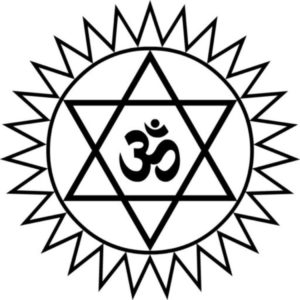 Blessed Yogis and Divine Beings,
Blessed Yogis and Divine Beings,
This Wednesday, 8 March, we are going to observe World Peace Day, and instead of saying we are going to observe I would like to say that we are going to celebrate the World Peace Day. Why? Is there actually something to celebrate? Yes, I am convinced. After 15 years of unceasing aspiration to end the threat of a global war, and completing more than 100 spiritual interventions to diffuse that threat, I am today convinced that our collective aspiration and group efforts have won the battle.
Today openly and joyfully I am declaring and assuring to the whole humanity that there shall be no global war on our planet at least as long as I am in the body. Anyone anywhere can note it down and be rest assured that my assurance will never go wrong. Millions may laugh at this and thousands may not believe it, but I declare again that my words will never go wrong.
With deepest gratitude and humility I am informing all of you that this achievement is not mine. It is all YOURS. Without you, the divine collaborators, I am sure it never would have been achieved. Yes, I call it an achievement, and it has come due to our collective work, our collective love for humanity, and our collective action to open up the universal plane in the individual systems of thousands of human beings on earth during the last 15 years.
The successful completion of the Chaturveda Yajna has convinced me that a GLOBAL WAR IS NOW IMPOSSIBLE.
Today, as a small gift to mankind and as a token of my faith on the power of collective aspiration I want to share with you some important insights regarding the World Peace Meditation (WPM). Please forward this message with your request and my appeal to anyone you know to definitely practice the WPM at least twice during the period from 8 through 11 March. This meditation can be done by anyone anywhere this year and there is no restriction whatsoever. One can do it alone or in a group, inside or outside of the house, office, factory or workplace. During these four days it can even be practiced while sitting in an airplane or a car–but NOT while driving the car–or even sitting in a marketplace.
This year I call these four days Universal Days because the effect of the Chaturveda Yajna will fully enter the earth plane during this period, and anyone who even has absolutely no faith on me or on any yoga practice can feel the descent of the cosmic presence within herself or himself.
I request all the mothers of all faiths, beliefs and paths to please perform this technique and release the breath and the consciousness to your child. It does not matter if the child is even thousands of miles away. I request everyone to please do this meditation and consciously release your exhalation to anyone who is suffering from some physical problem, pain, disease or even mental depression. I appeal to all to complete this technique and release your positive thoughts and your exhaled breath with loving energy for your country’s president, prime minister, judges, doctors, engineers or any public official who is working for your country’s welfare. At least on this day, please rise above your party affiliations, liking and disliking.
I appeal to everyone to please pray for all those who are working, due to their ignorance, with the forces of destruction, so that they receive our love and find the correct path.
We belong to the whole humanity. Every human being, whether known or unknown, friend or foe, supporter or adversary, is a spark of God only, and everyone is entitled to live in Peace. On this World Peace Day let us embrace all and reject none. Let us transmit our positive thoughts to all, even if we know someone is basically negative, because we trust and believe that everyone can be transformed.
Let us invite ON THIS DAY at least one person to eat with us, and share with us his or her feelings, problems of life, views on the world situation and whatever else they feel to express.
WPM will never be the same after this because the descent of the power of cosmic Light will never be as intense as it will be this year during these four days.
Sarve bhavantu sukhinah
Sarve santu niramaya
Sarve bhadrani pasyantu,
Ma kaschit dukhabhag vabhet.
Let all be in an atmosphere of happiness, let all live in an environment of peace, let all acquire the power to see good in others, and let no one be in misery or sorrow.
This is my prayer, this is your prayer, and it is the prayer of the human soul.
All Glory to World Peace.
Blessings and Love.
Swami Sri Atmananda.
Let There Be Peace on Earth
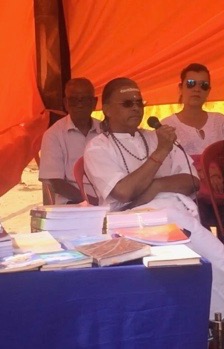
[Swamiji’s concluding remarks on the final day of the Chaturveda Yajna, 10 February. Below is the 26-minute audio recording, followed by the text of a clarified version that Swamiji edited after the event. This is a revised version of the original post.]
Blessed Divine Beings, great mahatmas, saints and seers!
On the concluding day of the Chaturveda Yajna I am prompted to share with you the purpose for which I decided to organize this yajna for the first time in Kali Yuga. I have tried to strictly follow the guidelines of the Vedas. During the last 5000 years nowhere on Earth a complete Veda Yajna was performed. This is the reason not only the knowledge but also how to perform Veda Yajna is lost to mankind.
I accepted the responsibility to conduct the Chaturveda Yajna after receiving a divine command. Except for a few devoted and pious souls, I have not asked for any financial support from anyone to organize this yajna. Rajasuya Chaturveda Yajna is not performed with the wealth of kings and emperors, nor with raising money on a mass scale. It is supported by the voluntary participation and spontaneous contribution of all. This is the reason why in spite of facing tremendous financial constraint and hardship, I did not allow public donations to be raised nor approached wealthy businessmen to collect money for this yajna.
One of the main purposes of Chaturveda Yajna is to give back Veda to mankind. Veda, the sacred sound, was revealed for mankind. It was not revealed for a man or a woman. When Veda was revealed, there was no country, no continent anywhere in this planet, there was no nationality, no religion, no culture, no tradition, because Veda is prior to all. It is prior to all the gods we are invoking and worshipping in this yajna pendal, prior to all seers and avatars. When Veda was revealed there was only the Absolute, the Brahman, the pure awareness.
Due to ignorance it is wrongly assumed that Veda is a Hindu scripture but truly speaking Veda is the revealed words and it is for the whole mankind. A myth has been perpetuated for thousands of years, especially after the decline of the Vedic culture, that Veda belongs to India, Veda is the scripture of the Hindus, and only some people, some individuals, have the right to chant Veda, read Veda, and perform yajna. This is a myth that no one dared to challenge. Today I am demolishing this myth. I declare: Veda belongs to mankind. Every human being, irrespective of place of birth, nationality, religion or culture, has a birthright to study Veda, chant Veda and perform yajna.
This is the reason the Chaturveda Yajna is being organized by Satyachetana International Spiritual Movement. It is not done by a Swamiji nor a saint nor a seer. To do this yajna I have received support from the whole Earth, from the entire mankind. I had assured that I would free the Vedamata from the cage of orthodoxy, cut the fetters of the decadent tradition and give Veda back to mankind. For that purpose I conducted the Chaturveda Yajna.
Today is the last day of this Yajna. For nine days, in four Veda kundas, we have performed havana for all the Vedic gods. No one can really tell how many gods are there in the Vedas because there are many, many mantras in the four Vedas where the name of the god is not mentioned since these are addressed to Divine forces.
The purpose of Veda is to guide us, the humans, to have a life of fulfillment on Earth. It is not meant only for brahmins, saints or seers, but also for the common men. In spite of the impact of time, we have preserved the Vedas, the mantras and the texts, through a long tradition of gurukkula parampara. Our Vedic chanters and priests have protected the purity of the mantras. I now request them to support me to revive the spirit of the yajna.
For the first time today we are going to perform the gayatri havana in Brahma kunda where everyone—irrespective of caste, creed and religion—is invited to join with me and chant the gayatri mantra and perform havana in the havan kunda.
I have learnt we human beings suffer in life due to two complexities. One is the superiority complex. The other is the inferiority complex. When someone feels, “I am superior to others,” he is actually acting, thinking and behaving against the spirit of Veda, and when someone thinks, “I am inferior to someone,” he is also similarly acting, behaving and thinking against the spirit of Veda, because Veda says all humans are embodiments of the Brahman only. That is also my realization.
I request those who are having the inferiority complex to overcome this complex. Those having the superiority complex of “I am or we are superior to others,” I request to get rid of this false feeling. No human being is superior or inferior to another human being—this is what Veda declares.
Mankind now needs a rational interpretation of the Vedas. If Veda mantras can be translated correctly as per the spirit of the time, everyone—man, woman, saint, seer—all can feel, “I am the child of Vedamata.”
I will strive until the last breath of my life to restore Veda to its original purity and glory. This is the message I’m giving to all. I appeal to all the saints, seers and priests of India to open the door of Vedamata for the whole mankind, whole humanity. We all are human beings, and we belong to one race: the human race. Today we are inviting the gods and offering oblations, and we are not making any distinction between the gods, whether it is Indra, Agni, Varuna, Rudra or Vishnu, we are not creating a hierarchy of gods. Why should we make any division between human beings? Why should we divide human beings based on religion, culture and skin color?
Veda is the only force on Earth that can not only unite the world, but also promote the welfare of the entire brahmanda. We as human beings carry that responsibility. The time has come. The Satya phase in Kali Yuga has begun. This is the message that I heard from Veda and this is the message I’m giving.
Today, the concluding day of this Chaturveda Yajna, is a great day in human history because today I am freeing Vedamata from the fetters of orthodoxy. Let us break the wall of superstition, break this wall of division. We all are human beings; we all are children of Vedamata. We are not Indians, Asians, Europeans, Americans or Africans. We are human beings and Veda is our mother and together we all should revive and restore the glory of Veda.
Look at the West. The Western world achieved perfection in material science but did not restrict its spread. Technology travelled all over. The whole world benefitted. Let India show to the world that the knowledge of the Vedas also can travel to the whole universe. Secrets of Veda should be available to the whole mankind. If this is done, there will be integration of matter and spirit, and this integration will ensure a new phase of evolution. A new era will dawn when there shall be peace, progress, harmony and unity among all human beings. That is the day for which the gods in heaven are waiting. That is the day for which the seers are waiting. Let us take the resolve today to fulfill this purpose.
This is my appeal to all. I know there are hundreds and thousands of awakened beings in many countries of the world and they are eagerly waiting to know what Swamiji said at the end of the Chaturveda Yajna. I am not speaking to any individual, nor to any country or culture. I’m speaking to the soul of humanity. I’m speaking to the whole universe. Let us take this collective resolve today and actively collaborate with Vedamata to restore her glory, revive her purity.
Today the brahmin priests are sitting in the yajna pendals. They should travel to every country all over the world and spread the message of Veda and teach others how to perform yajna. No human being is untouchable and no one is superior or inferior to another human being. We all are one. We all are sparks of Divine.
This is the message of Veda, this is my realization and this is my resolve. May Vedamata give us the power and the strength and the will and the determination to fulfill this pledge. For the first time in Kali Yuga, in this capital city of Odisha, the place of Lord Jagannath, the real place of Chaturveda, from here let a message go to the world that we all will work together and revive the glorious tradition of the Vedas and create the paradise that is mentioned in the Vedas. It is possible. It is inevitable. All glory to Vedamata. All glory to human aspiration. And all glory to the saints and seers and noble souls of all ages, all religions and all countries.
My humble salutations to you all. Let peace, progress and harmony be on Earth.
VICTORY
The Chaturveda Yajna reached its successful completion on 10 February with the full chanting of all four Veda and numerous powerful ceremonies. Check back soon for Swamiji’s concluding remarks given on 10 February.
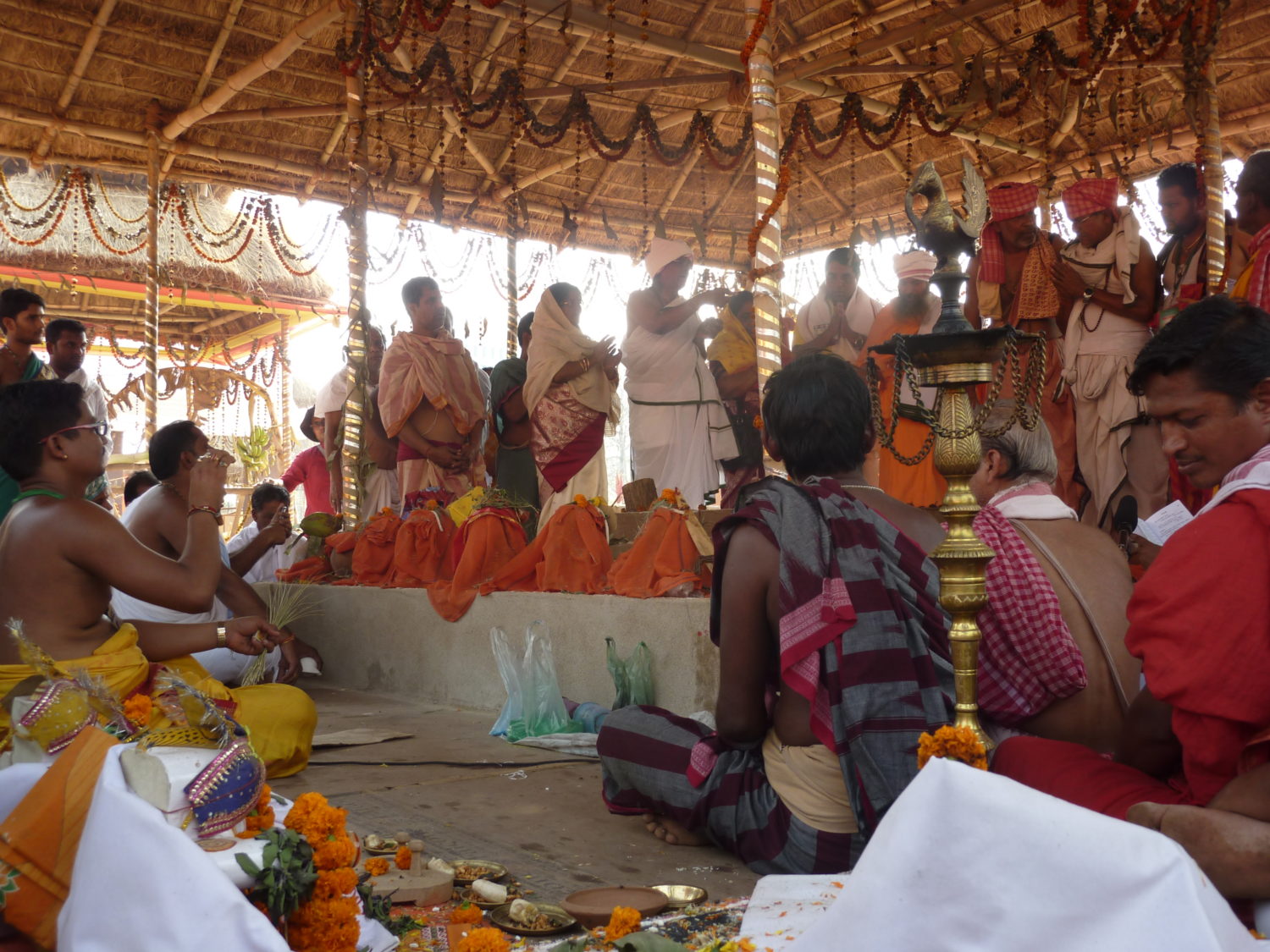
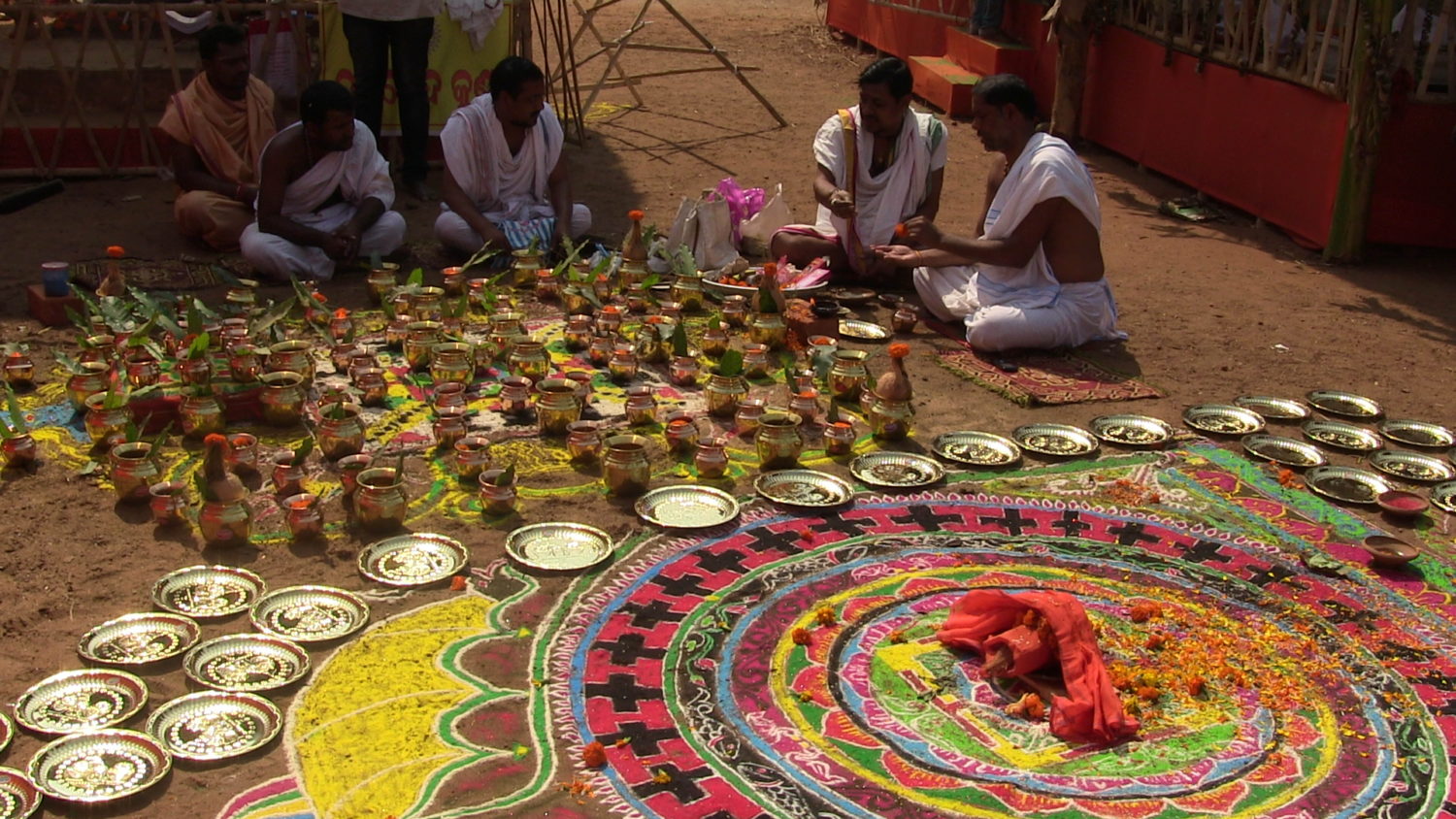

 OM Namo Bhagavate
OM Namo Bhagavate